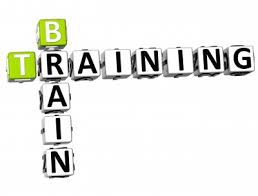 1. Attitude
1. Attitude
Successful athletes:
- Realize that attitude is a choice.
- Choose an attitude that is predominately positive.
- View their sport as an opportunity to compete against themselves and learn from their successes and failures.
- Pursue excellence, not perfection, and realize that they, as well as their coaches, teammates, officials, and others are not perfect.
- Maintain balance and perspective between their sport and the rest of their lives.
- Respect their sport, other participants, coaches, officials, and themselves.
2. Motivation
Successful athletes:
- Are aware of the rewards and benefits that they expect to experience through their sports participation.
- Are able to persist through difficult tasks and difficult times, even when these rewards and benefits are not immediately forthcoming.
- Realize that many of the benefits come from their participation, not the outcome.
3. Goals and Commitment
Successful athletes:
- Set long-term and short-term goals that are realistic, measurable, and time-oriented.
- Are aware of their current performance levels and are able to develop specific, detailed plans for attaining their goals.
- Are highly committed to their goals and to carrying out the daily demands of their training programs.
4. People Skills
Successful athletes:
- Realize that they are part of a larger system that includes their families, friends, teammates, coaches, and others.
- When appropriate, communicate their thoughts, feelings, and needs to these people and listen to them as well.
- Have learned effective skills for dealing with conflict, difficult opponents, and other people when they are negative or oppositional.
5. Self-Talk
Successful athletes:
- Maintain their self-confidence during difficult times with realistic, positive self-talk.
- Talk to themselves the way they would talk to their own best friend
- Use self-talk to regulate thoughts, feelings and behaviors during competition.
6. Mental Imagery
Successful athletes:
- Prepare themselves for competition by imagining themselves performing well in competition.
- Create and use mental images that are detailed, specific, and realistic.
- Use imagery during competition to prepare for action and recover from errors and poor performances.
7. Dealing Effectively with Anxiety
Successful athletes:
- Accept anxiety as part of sport.
- Realize that some degree of anxiety can help them perform well.
- Know how to reduce anxiety when it becomes too strong, without losing their intensity.
8. Dealing Effectively with Emotions
Successful athletes:
- Accept strong emotions such as excitement, anger, and disappointment as part of the sport experience.
- Are able to use these emotions to improve, rather than interfere with high level performance
9. Concentration
Successful athletes:
- Know what they must pay attention to during each game or sport situation.
- Have learned how to maintain focus and resist distractions, whether they come from the environment or from within themselves.
- Are able to regain their focus when concentration is lost during competition.
- Have learned how to play in the “here-and-now”, without regard to either past or anticipated future events.
For the full article visit: http://www.sportpsych.org/nine-mental-skills-overview